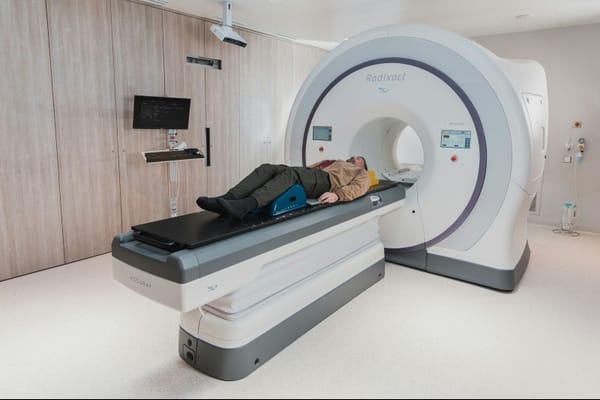In a surprising turn of events, New Zealanders have shown remarkable openness to an unconventional medical treatment that's making waves in the world of gut health: fecal microbiota transplantation (FMT), colloquially known as "poo transplants." A recent large-scale survey has revealed that Kiwis are not only aware of this cutting-edge procedure but are also largely willing to consider it as a potential treatment option. This article delves into the findings of this groundbreaking study and explores the implications for the future of gut health in New Zealand and beyond.
Key Takeaways
- Over 75% of surveyed Kiwis are aware of fecal transplants.
- Nearly all respondents would consider FMT if proven safe for their condition.
- Most prefer capsule form over more invasive methods.
- Donor diet and health are top concerns for potential recipients.
- Researchers are exploring FMT's potential for various conditions beyond C. difficile infections.
- Future developments may include over-the-counter probiotic-like treatments derived from FMT research.
The Surprising Acceptance of Fecal Transplants
When it comes to medical treatments, few topics are as potentially off-putting as the idea of transplanting fecal matter from one person to another. Yet, a recent survey conducted by researchers at the University of Auckland's Liggins Institute has revealed a startling level of acceptance among New Zealanders for this innovative procedure[2].
The study, which surveyed nearly 2,500 Kiwis, found that more than three-quarters of respondents were already aware of fecal microbiota transplantation (FMT). Even more surprisingly, almost all participants indicated they would be willing to undergo the treatment if it was proven safe and effective for a condition they had[2].
Understanding Fecal Microbiota Transplantation
Before delving deeper into the survey results, it's important to understand what FMT actually entails. Fecal microbiota transplantation is a medical procedure that involves transferring fecal bacteria and other microbes from a healthy donor to a recipient. The goal is to restore a healthy balance of gut bacteria in the recipient's digestive system.
Each of us carries about 1.5kg of microbes in our gut, forming what's known as the microbiome. This complex ecosystem plays a crucial role in our overall health, influencing everything from digestion to immune function and even mental health[2].
The Potential of FMT
While FMT is currently most well-known for its effectiveness in treating recurrent Clostridioides difficile infections (rCDI), researchers are exploring its potential for a wide range of other conditions[3]. These include:
- Inflammatory bowel diseases
- Metabolic disorders like diabetes
- Liver diseases
- Food allergies
- Mental health conditions like depression and anxiety
- Autism-related gastrointestinal issues
Professor Justin O'Sullivan, director of the Liggins Institute, explains that changes in the gut microbiome are associated with numerous health conditions. The exciting aspect of FMT is that it offers a way to manipulate or restore the gut microbiome, potentially addressing these conditions at their root[2].
Kiwis' Attitudes Towards FMT
The survey revealed several interesting insights into how New Zealanders view FMT:
- Preference for Less Invasive Methods: Most respondents expressed a preference for taking FMT in capsule form rather than through more invasive approaches like endoscopy[2].
- Donor Considerations: While the sex and ethnicity of donors were not significant factors for most respondents, there was a strong emphasis on donor diet and health. Many participants wanted assurance that donors ate healthy diets with minimal processed foods[2].
- Dietary Preferences: Some respondents, particularly vegetarians and vegans, expressed a preference for donors with similar dietary habits to their own[2].
- Safety First: The overwhelming willingness to consider FMT was contingent on the treatment being proven safe for the recipient's specific condition[2].
Real-World Experiences
The article also highlighted the experiences of two participants in an ongoing FMT trial for autism-related gastrointestinal issues. Eli Dobson, a 46-year-old man recently diagnosed with autism spectrum disorder, saw the trial as a potential solution to lifelong stomach problems. Similarly, a 21-year-old Auckland student expressed excitement about being part of frontier research[2].
Both participants noted that while they were comfortable with the treatment, they were aware that others might have misconceptions about it. This highlights the importance of public education and awareness campaigns as FMT research progresses.
The Future of FMT
While the survey results are encouraging, it's important to note that FMT is not yet widely available as a standard treatment option. Professor Wayne Cutfield, a pediatric endocrinologist at the Liggins Institute, explains that FMT is still largely limited to the research space as studies continue to address concerns about long-term safety and efficacy[2].
However, the future looks promising. Researchers are already developing skills to identify key beneficial bacteria and culture them for mass production. This could lead to the development of "super probiotics" that don't rely on human donors, making the benefits of FMT more widely accessible[2].
Implications for Public Health
The high level of awareness and acceptance of FMT among New Zealanders is encouraging for researchers and clinicians. It suggests that if FMT proves to be an effective treatment for various conditions, there will likely be a receptive patient population willing to consider it.
This openness to innovative treatments could accelerate research and potentially lead to faster adoption of FMT and related therapies in clinical practice. It also highlights the importance of continued public engagement and education about gut health and emerging treatments.
Conclusion
The surprising findings of this survey reveal that New Zealanders are not only aware of fecal transplants but are also largely open to considering them as a treatment option. This acceptance could pave the way for further research and development in the field of gut health.
As we continue to unravel the mysteries of the gut microbiome, treatments like FMT may become increasingly important in addressing a wide range of health conditions. While there's still much work to be done before FMT becomes a mainstream treatment option, the willingness of the public to consider such innovative approaches is a positive sign for the future of healthcare.
For now, those interested in gut health can focus on maintaining a healthy diet, rich in diverse plant-based foods, to support their microbiome. As research progresses, we may soon see new probiotic-like treatments derived from FMT studies available over the counter, bringing the benefits of this cutting-edge research to the general public.
Citations:
[2] https://www.ncbi.nlm.nih.gov/pmc/articles/PMC7578309/
[3] https://www.ncbi.nlm.nih.gov/pmc/articles/PMC8460966/
[4] https://my.clevelandclinic.org/health/treatments/25202-fecal-transplant
[5] https://www.hopkinsmedicine.org/health/treatment-tests-and-therapies/fecal-transplant
[6] https://www.washingtonpost.com/wellness/2024/06/03/what-is-a-fecal-transplant/
[7] https://en.wikipedia.org/wiki/Fecal_microbiota_transplant













Member discussion